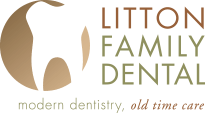Headaches can be easily dismissed by a lot of us. “Oh, maybe I didn’t have caffeine today.” “Maybe, I’m just tired.” “It could be allergies.” When they begin to become a regular occurance, it’s time to see a medical professional. This is especially the case when they’re accompanied by other symptoms, such as jaw pain. This could be an additional symptom or a sign you could be experiencing TMJ, otherwise known as Temporomandibular Joint Dysfunction. This affects 5 to 10 percent of Americans in their lifetime. It’s also twice as likely to occur in women than men. Let’s jump into the symptoms and treatments for TMJ and some life changes that can aid in easing the pain associated with it.

Symptoms of TMJ
- Jaw pain (especially when chewing food or talking)
- Ear pain
- Noises coming from your jaw (usually a clicking one)
- Chronic headaches
- Tight facial muscles
- Difficulty opening and closing your mouth
- Stiffness of the jaw
- Fibromyalgia
- Overall tenderness in the jaw
- Difference in how your bite looks (how your top and bottom teeth are fitting together)
- Migraines
Treatments
- If the pain is persistent, see a doctor for a possible stronger medication prescription, bite guard or stabilization splint.
- Some individuals with extreme TMJ symptoms will need a more permanent treatment in the form of surgery. Although this has been proven effective, make sure to find a doctor or dentist with specific expertise with TMJ operations.
Lifestyle changes
- Limiting how often you eat hard, crunchy and chewy foods.
- Consider swapping gum for mints to eliminate the inflammation of your jaw muscles and joints.
- Temporarily taking over the counter anti-inflammatory medication.
- Practicing things such as meditation and other stress-relieving activities so you reduce bad habits like grinding your teeth and clenching your jaw. TMJ pain is often anxiety induced so stopping it at its source helps tremendously.
- Certain gentle jaw exercises like massaging your jaw to increase blood flow can help to relax your muscles.
- Icing your jaw area.
- Be careful with movements that involve opening your jaw wide such as yawning and chewing gum.
As always, feel free to contact us with any questions you might have. Your concerns matter to us!
Contact Us